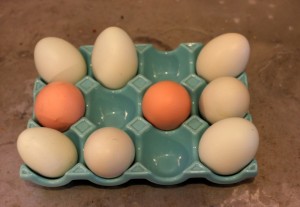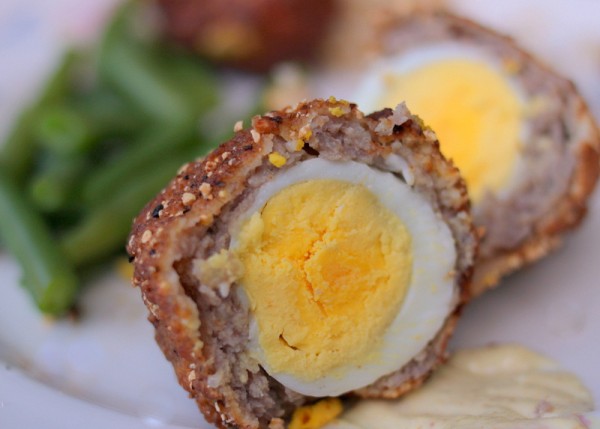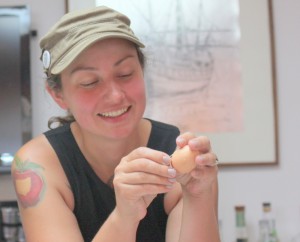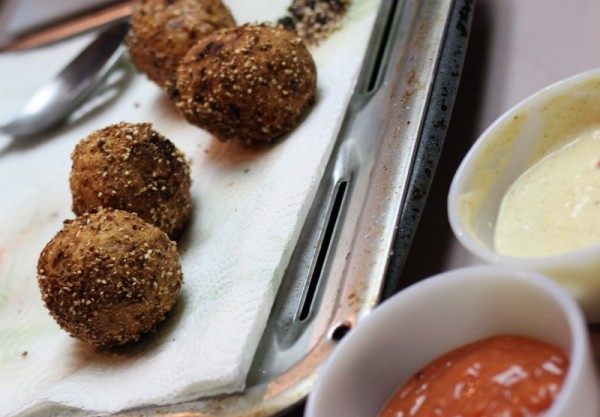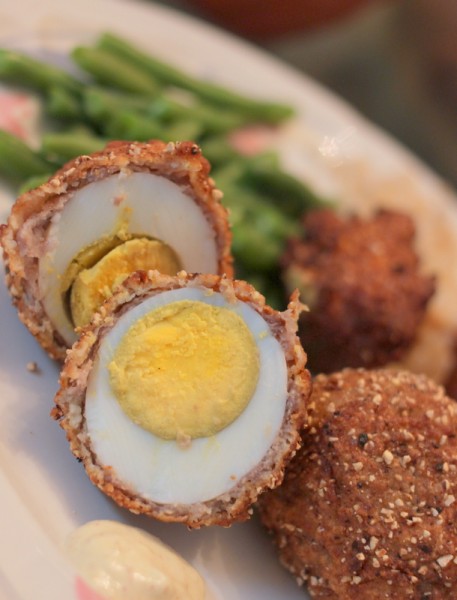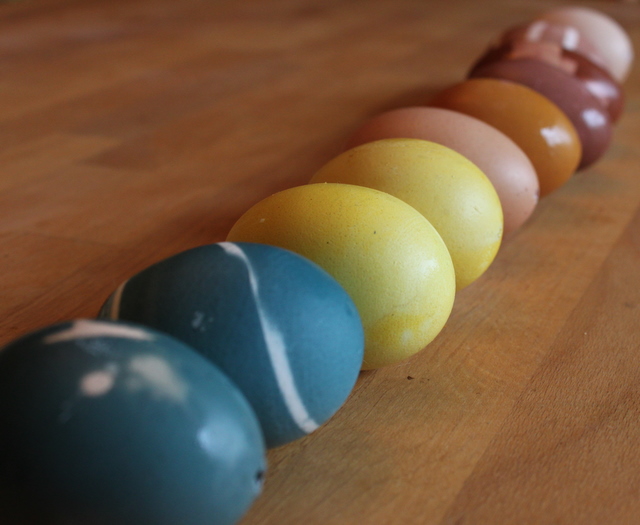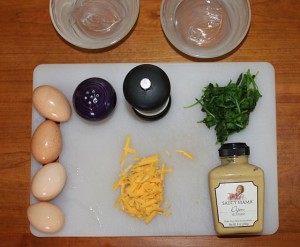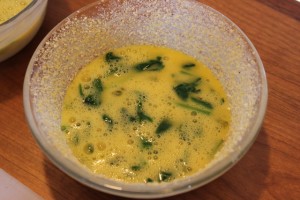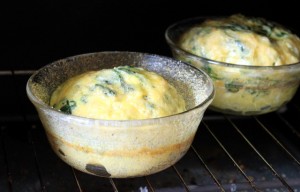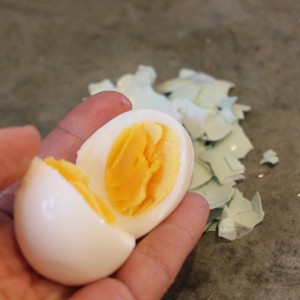 Before raising chickens, I would never have imagined myself longing for a boiled egg. I rarely made them, and when I did, they were often over cooked because I tend to wander and forget about timers. But now I give them my full attention from choosing the right egg to measuring the cooking time to peeling and savoring the final egg. Backyard chicken boiled eggs are a rarely enjoyed luxury item around here, one we're just returning to now that our replacement flock is laying eggs after the fox attack.
You see, fresh chicken egg shells are stuffed full of albumin and yolk. The semi-permeable shells allow in the tiniest bit of air which forms a bigger pocket of air over the weeks of the eggs' shelf life. This air pocket is why you can tell if an egg is still good by soaking it in water - too much air and you can assume the egg is very old and potentially spoiled - and it's also what allows you to peel a boiled egg.
Before raising chickens, I would never have imagined myself longing for a boiled egg. I rarely made them, and when I did, they were often over cooked because I tend to wander and forget about timers. But now I give them my full attention from choosing the right egg to measuring the cooking time to peeling and savoring the final egg. Backyard chicken boiled eggs are a rarely enjoyed luxury item around here, one we're just returning to now that our replacement flock is laying eggs after the fox attack.
You see, fresh chicken egg shells are stuffed full of albumin and yolk. The semi-permeable shells allow in the tiniest bit of air which forms a bigger pocket of air over the weeks of the eggs' shelf life. This air pocket is why you can tell if an egg is still good by soaking it in water - too much air and you can assume the egg is very old and potentially spoiled - and it's also what allows you to peel a boiled egg.
A plucked-from-the-nest-box-this-morning egg has a negligible air pocket and if you boil it, you have a 1 in a million chance of peeling it easily. Most likely you'll spend ten minutes picking away minuscule bits of egg shell. After a couple trips down that road, I started trying old wives tales like adding salt or vinegar to the water. No dice.
I didn't find boiling egg nirvana until I considered the brilliance of the shell. The shell is meant to keep the yolk fresh until the hen has laid a dozen or so eggs over a dozen or so days for a clutch. The container then has to handle high heat and movement while a hen incubates the egg for another twenty one days. In nature, egg shells are designed to keep their contents safely held for at least four weeks! No wonder they don't want to give up easily in the kitchen.
My process for boiling eggs now takes over a week of preparation and consideration.
Hard Boiled Backyard Eggs
1. Wash fresh eggs. This removes the "bloom", a coating that seals in the egg's moisture. Allow them to drip dry.
2. Place eggs in the fridge for about a week, uncovered. Refrigerators dry their contents due to the lower temperature and humidity. Commerical egg producers often use syrofoam, plastic, or coated cardboard egg cartons to keep a little bit of moisture around their eggs. We want the eggs to dry out a bit, so I skip the cartons and use the egg tray that came with my fridge.
3. Boil minimally. I like room temperature eggs in room temperature water, brought to a boil quickly. Then I cover the pot for 10 minutes. Alex prefers 11 or 12 minutes.
4. Chill instantly. When the timer goes off, uncover the lid and run cold water over the eggs and/or fill the pot with ice. This stops the eggs from continuing to cook.
5. Peel and eat happily. Eggs will peel without much effort. I enjoy boiled eggs as is, made into egg salad or deviled eggs, or the most extravagant preparation, Scotch Eggs.
File this under "Things You Don't Know Until You Raise Chickens". What else would you add to that list?

